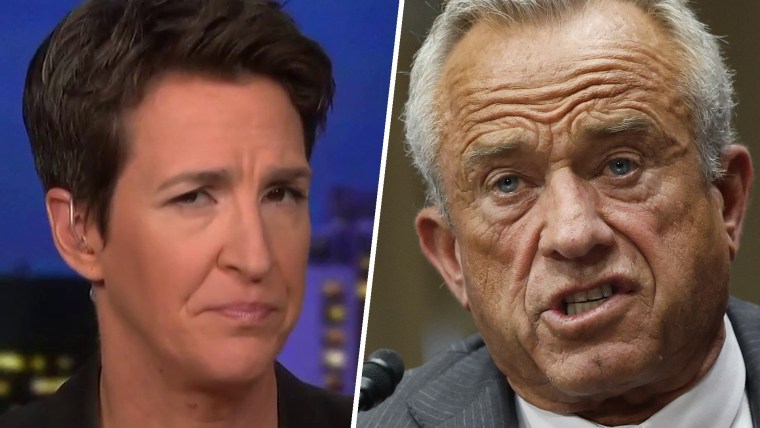About a month after the 2024 elections, after Donald Trump announced plans to nominate Robert F. Kennedy Jr. for a Cabinet post, a group of congressional Republicans had an idea. Five GOP senators — Kansas’ Roger Marshall, Alabama’s Tommy Tuberville, Florida’s Rick Scott, Wyoming’s Cynthia Lummis, and Wisconsin’s Ron Johnson — launched what they called the “MAHA Caucus.”
The acronym, of course, stood for “Make America Healthy Again.”
It wasn’t altogether clear what the Senate contingent would do, exactly, but the general idea was to champion the vision of the notorious conspiracy theorist and anti-vaccine activist. (One member of the quintet, Kansas’ Marshall, was a medical doctor before getting into politics.)
The Senate caucus will now apparently have a companion commission in the executive branch. NBC News reported on Kennedy and his new role chairing a new federal panel focused on addressing chronic disease.
President Donald Trump established the commission Thursday with an executive order he issued just hours after the Senate confirmed Kennedy. The Make America Healthy Again Commission, as it’s called, will consist of several high-ranking federal officials, including the administrator of the Environmental Protection Agency, the commissioner of the Food and Drug Administration and the directors of the National Institutes of Health and the Centers for Disease Control and Prevention.
For now, let’s not dwell on the oddity of seeing someone lead a panel on addressing chronic ailments despite having no background whatsoever in science, medicine, health care, medical treatments, medical research, or policymaking at any level of government.
Let’s instead consider why it’s difficult to take the “MAHA Commission” seriously.
In the abstract, the idea behind the commission certainly seems worthwhile. Who would be opposed to making Americans healthier and assisting those with chronic diseases?
The fine print, however, matters. Some of the language in the executive order creating the commission, for example, raised alarms among those on the lookout for an anti-vaccine agenda.
What’s more, as The Washington Post’s Catherine Rampell recently explained in a column, the policy agenda embraced by the Trump White House and congressional Republicans — which includes Medicaid cuts, cutting investments in nutritional programs, and dismantling environmental protections — would do little to make the public healthier
It’s against this backdrop that the public was confronted with a series of related reports, just from the past few days:
- As the Trump administration fires scores of federal workers, among those who’ve been ousted are public-health officials, some of whom are responsible for emergency preparedness and response.
- NBC News similarly reported on Team Trump ousting so-called “disease detectors”: officials at the Laboratory Leadership Service at the Centers for Disease Control and Prevention who work on supporting outbreak response efforts.
- NBC News similarly reported that the White House has restricted communications that have hobbled public health officials’ response to a burgeoning bird-flu threat.
- Information from the CDC on influenza and H5N1 has been taken down from online resources without explanation.
What's more, if we look beyond the last few days, the public has also seen brutal proposed cuts to the National Institutes of Health, among other similarly regressive actions.
If administration officials want to help make Americans healthy, perhaps they can stop taking steps in the opposite direction?

